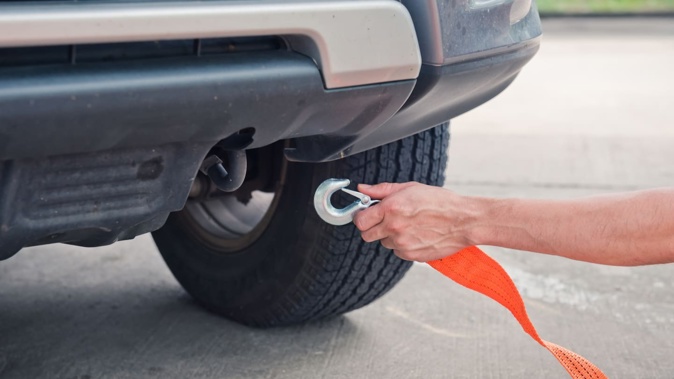

- A father disabled a car to prevent his son, on a learner’s licence, from driving it illegally.
- The car owner claimed $11,000 in damages, but the borrower was ordered to pay $2000.
- The Disputes Tribunal found insufficient evidence for some damage claims and highlighted the owner’s own reckless driving.
A father who worried his son was driving his friend’s car illegally, disabled it so it couldn’t be driven.
The car had been loaned to the young driver, for a fee, by a mate who was on holiday overseas.
After driving it to work one day, his father saw it parked on the roadside and became concerned his son, who was on a learner’s licence, was driving the vehicle “illegally”.
The dad found the car unlocked so removed his son’s belongings and disabled the vehicle by removing a relay from under the bonnet, in a bid to stop him from driving it, a recent Disputes Tribunal decision detailed.
When the owner learned of this, he told his friend to take the car to his grandmother’s house and leave it there.
He did as asked, having arranged for a person to tow it to the property.
The owner arrived back from holiday and found it with apparently $9000 worth of damage, not only from the way it was towed but also because it had allegedly been driven recklessly, at speed and by drunk drivers while he was away.
Tribunal referee Jeanette Tunnicliffe understood the tow rope was not connected to the correct towing point and it was damaged as a result.
But she found the person who towed the car was not liable for the repair costs.
She said that was because the damage caused during the tow was not the responsibility of the person who had carried it out but the person who arranged it, the young man.
“[The respondent] had a duty to ensure that the person he arranged to tow the car had sufficient knowledge and experience to carry out the tow safely, and it appears that that person did not.
“[He] could have engaged a professional towing business instead.”
Tunnicliffe ordered the young man who borrowed the car to pay the owner $2120 to cover the cost of the related repairs and the agreed-upon price for the car’s loan.
A person who has the care and possession of another person’s property is called a bailee, who is required by law to take reasonable care of it, she said in the decision.
“If a bailee breaches his duty to take reasonable care, and there is damage as a result, the bailee is liable for the cost of repairing the damage.”
The ruling was well short of the $11,000 claim by the owner who also felt he was owed lost wages after he was unable to get to work because he had no car.
Tunnicliffe was not satisfied that he could not have found an alternative way to get to work, and his claim for damage linked to the car allegedly having been driven recklessly also failed.
Video evidence before the tribunal showed the owner driving it at speeds up to and over 180km/h, and sliding the car on gravel, which “gave rise to the reasonable possibility” he may have caused the damage himself.
Tunnicliffe found the car’s front bumper and radiator support panel were damaged while it was being towed, but a claim for additional panel damage and mechanical repairs was not made for several reasons, including a lack of evidence proving the vehicle’s condition before the loan.
The $3868 mechanical repair cost claimed by the owner was for brake pads and rotors, brake fluid, a radiator cap, oil and oil filter, a second-hand alloy mag, and two tyres.
The oil, oil filter and radiator cap were costs more associated with regular maintenance than damage, Tunnicliffe said.
Take your Radio, Podcasts and Music with you









